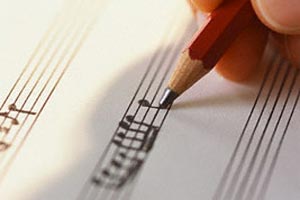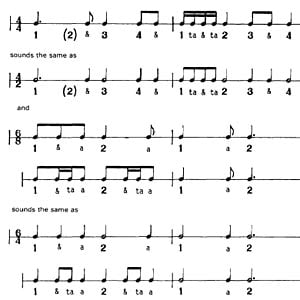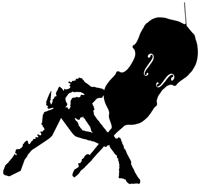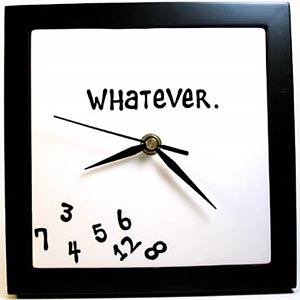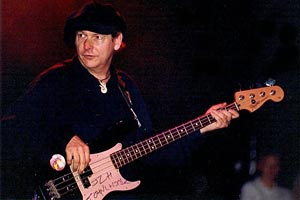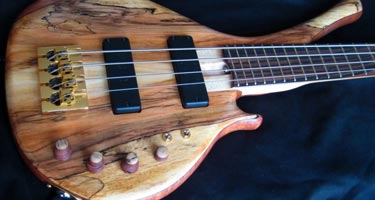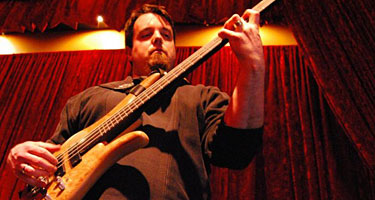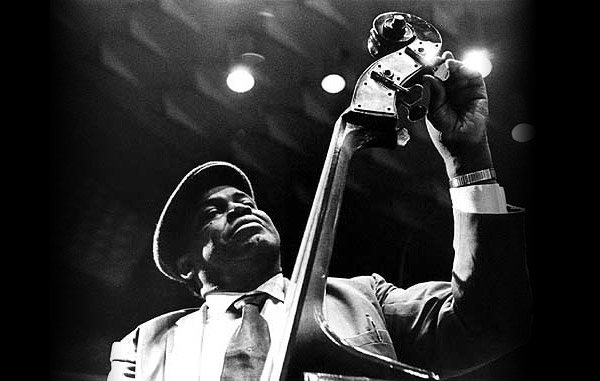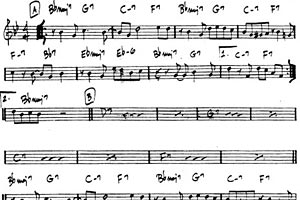Columns: How Tos, Advice & Lessons for Bass Players
Columns - Page 70
Preparing for College Auditions
As someone who has taught at the University/Conservatory level for a number of years, I get many questions regarding undergraduate music school auditions. Some questions are specific to my school, but many are general requests for advice. As I am currently deep into audition season, I thought I would summarize some of my more common suggestions. Although much applies to...
Stuck On A Song: How to Finish that Composition
Q: I’m struggling with some new compositions. I have some solid parts I like, but overall I feel that the melody or changes (or both) don’t work everywhere in the tune. It also feels that it may need more movement. How do you approach fine-tuning a tune? A: While I have written and arranged music, most of my experience is...
Rhythms and Transcriptions: A How To Guide to Notating Rhythmic Patterns
Q: I have a question about transcribing. I’m a pretty skilled player and can read, but I have a lot of problems writing down the rhythms that I hear either in my head or from a particular song. Any suggestions on how I should go about learning to notate more difficult rhythms? A: Rhythms can be tricky when you’re first...
Left Hand Thumb: Pressure
Note: For Left Hand Thumb positioning, check out the previous installment. When there is excess tension in the hands, the source is often improper use of the thumb and its corresponding muscles. The thumbs of both hands, just like all the fingers, should use minimum effort and pressure to achieve any particular technical goal. Pressure When in standard “neck position”...
Lazy Horns and Keeping Time
Q: I’ve started rehearsing with a big band and while I’m finding it a lot of fun and a good challenge, I’ve been having a hard time keeping the time. The horns seem to play way behind the beat much of the time and it just feels uncomfortable no matter what I do. If I try and lay back for...
The Most Influential Blues Bassists: Part 2
After reading the previous column in this two-part series, I’m hoping you’ve had a chance to check out some music featuring the playing of Willie Dixon and Duck Dunn. Their old school approaches to playing blues compliments the players they accompanied and reflects how novel full-band blues recordings were in the 1950’s and ’60’s. Early on, blues recordings typically only...
Custom Shop: An Interview with Grant Freifeld of Grant Bass
Armed with passion and determination, Ontario-based bassist Grant Freifeld got his start building instruments after becoming disgusted with “cheap painted plywood guitars” and basses that are “someone else’s idea of custom.” After apprenticing with Joe Kovacic of Lado Guitars, Freifeld created his own brand, Grant Bass. His humility allows him to be more open to ideas, citing that expanding his...
On Improvising: Modal vs. Chordal Approaches
Q: I’ve been playing for a little bit now and would consider myself a solid player, but I’m looking to really up my level of expression. There seems to be a dichotomy on modal vs. chordal approaches to theory, I figured I’d ask you where the break is. Both seem necessary, but some seem to think the modal stuff is...
Left Hand Thumb: Position
For all instrumentalists, excess tension should be a source of concern. We should work to eliminate it as much as possible. For string players, and especially bassists, excess tension can not only lead to technical and musical inaccuracies, but also to physical discomfort and injury. Sometimes these injuries can be resolved or worked around, other times they cannot. When serious...
Location, Location, Location. Does it Matter for a Pro Musician?
Q: Having read previous columns, I noticed that you’ve lived all over the US. I was wondering if you’d found that developing a music career was any more beneficial in one place than another. I live in Edinburgh, Scotland, and get the impression from a lot of musicians and friends that Glasgow, Scotland or London, England would be a better...
The Most Influential Blues Bassists: Part 1
One of the common bonds between a lot of us bass players is that we learned how to play by ear. Unlike other instruments, such as the clarinet or piano, we didn’t start out by taking private lessons, nor did we play in the fourth grade orchestra at school. Instead, we heard songs on the radio with cool bass lines...
Reading Requirements: Bass and Treble Clef?
Q: I can already read treble clef fairly instinctively, having played the clarinet for years. I started playing jazz (on bass) a few months ago, and now can find my way around most lead sheets, but my question is: should I bother to learn bass clef, when treble clef feels more natural to me? I rarely have a need to...

